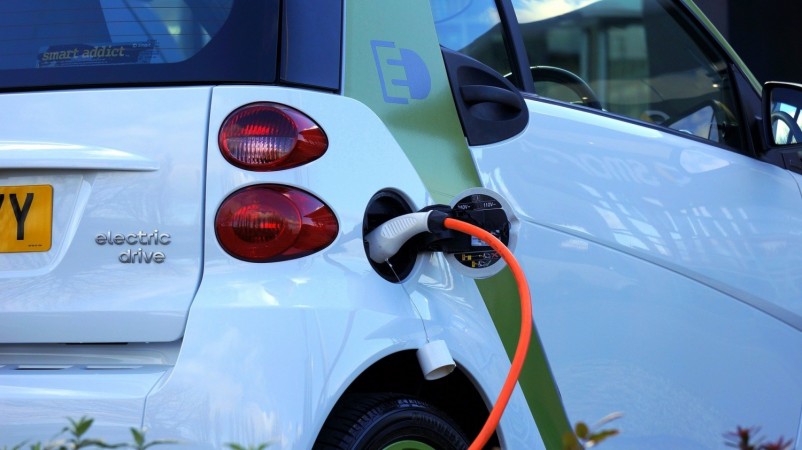
It's no secret that vehicles are a huge source of harmful pollutants. Because of the big impact of cars, we each must take responsibility to reduce our carbon footprint by making our vehicles as eco-friendly as possible.
Why are cars so harmful?
While zooming down an open road is a wonderful feeling, it's important to remember the consequences. You may think that the gases emitted from your car's exhaust pipe are the only source of pollution, but there is a wide range of other sources that we often forget.
When you take into consideration the production and distribution of cars, as well as the adverse effects of the fuel industry, the overall impact of vehicles on the environment increases substantially. Making a car creates the same amount of carbon pollution as driving does.
In terms of the smog created by the burning of fuel, these exhaust fumes contribute directly to the air pollution problems we experience today. Cars make our air dirty. It is becoming more and more harmful to breathe, while it's also contributing to acid rain, unhealthy crops and the depletion of the ozone layer.
Four main types of pollutants resulting from driving:
Carbon Monoxide (CO)
Hydrocarbons (HC)
Nitrogen Oxides (NOx)
Particular Matter (PM)
How can I minimize my car's impact on the environment?
While cars can do damage to our air quality, they are also a necessity for many people across the country. Realistically, life without a vehicle would next to impossible. But this doesn't mean we can't make an effort to be more eco-friendly in our habits. Here are a few ways to make your car a little more green.
1. Refill tires
Be vigilant about checking your tires' air pressure. With the proper amount of air pressure, your tires will help you to achieve better gas mileage. Because under-inflated tires put a strain on your engine, it, in turn, has to work harder and ends up burning more fuel than it needs to. By consuming less fuel, this will make a significant environmental impact in the long run.
It's easy to maintain properly pressurized tires. Every time you visit the gas station, check and fill your tires using an air compressor. You'll also end up saving a significant amount of money on gas. Over a year, the average family will save around $400.
2. Keep it light
By reducing the load you're carrying around in your car, you will also reduce your mileage. The heavier your car, the more fuel it needs to propel it forward. Spend an afternoon doing a car cleanout. Make sure you only drive with what you need.
3. Avoid switching on the air conditioner
We're all familiar with that awful feeling of stepping into a hot, stuffy car in the peak of summer. It's incredibly tempting to blast the air conditioner for hours on end, but by limiting your use of the A/C, you'll make your car more efficient and more eco-friendly.
When every you switch on the air conditioning system, you put a strain on the electrical system, which in turn requires more fuel.
Of course, sometimes the heat will be truly unbearable. If you do need to use the air conditioner, make sure the system is serviced frequently to avoid wasting excess energy.
4. Keep the fuel system in good order
The fuel system is complex and needs regular checks to ensure it's running efficiently and safely. The system works by storing and supplying fuel to the engine. It is mixed with air, then atomized and vaporized.
There are several important components of a typical fuel system, including the fuel tank, the fuel pump, the fuel lines, the fuel filter, and the fuel injectors. Because fuel is moved through all of these parts at a variety of temperatures and pressures, they can become clogged or leaky over time.
You may also experience the symptoms of issues with the turbochargers, which kick in when you need to accelerate. These include loss of power, slower acceleration, and difficulty maintaining high speeds.
If you notice any strange sounds (like sputtering or clinking) or smells coming from the engine, it may be a sign that your fuel system needs servicing. Be sure to stop any leaks or clogs as soon as possible, as these issues prevent the engine from using fuel efficiently. You'll notice poor fuel economy which, of course, means excess fumes in the air.
5. Check the emissions system
The emissions system in your car is designed to reduce the number of harmful gases that escape your vehicle into the air. Alongside the exhaust system, its job is to minimize the pollutants mixed in with the air that is released from the tailpipe.
Exhaust gases are produced during the fuel-burning process within the engine. They are then collected from the cylinder head by the exhaust manifold. This funnel-like part takes the gases from the engine to the catalytic converter. This part of the system removes most of the harmful gases like carbon monoxide and hydrogen monoxide by converting them into inert gases. It passes through the silencer before escaping from the tailpipe.
Modern vehicles produce significantly fewer pollutants in comparison to the vehicles of the past, largely due to the introduction of the catalytic converter. However, if any part of this system fails, you risk allowing more harmful gases into the air than you need to.
If you notice a scent of rotten eggs, this is likely a sign that the catalytic converter is having trouble dealing with the Sulfur pollutants from the engine. This is a signal that the converter should be replaced.
You also need to keep an eye out for leaks within the system, as this could result in toxins being released into the air inside your car.
6. Regular checks
Regular servicing is always a great way to ensure efficiency. Make sure you get regular oil changes, new tires, new filters, and new spark plugs. By keeping your car in good condition, you'll reduce the chances of finding an unexpected internal issue further down the line.
7. Visit the car wash
You may think it's much more energy efficient to wash your car by hand, but it's much worse for the environment than a trip to the car wash. When you wash your car by hand, you leave behind a trail of water filled with gas, oil and exhaust residue. This tends to go down the drain, where it finds its way into natural waterways, which can have horrible effects on the wildlife and plant life it encounters.
Commercial car washes, on the other hand, are legally required to drain their waste into a sewer system where it's cleaned before being fed back into rivers and streams. So, by washing your car at a car wash, you will actually reduce the waste you produce.
8. Ride-share
It may sound obvious, but one sure-fire way to reduce emissions is to reduce the amount you drive. Often, this is easier said than done. While promising yourself you'll bike to work may end in disappointment, ride-share habits are much easier to maintain.
If you drive to and from work, or to and from the kids' school daily, consider finding a neighbor who takes a similar route. You'll both save time by taking turns doing the driving, plus you'll both save money on fuel. You'll also halve your net emissions, so it really will be a win-win scenario.
9. Buy a second-hand car or wait to repurchase
As we mentioned earlier in the article, producing cars takes its toll on the environment. The car manufacturing industry produces a huge footprint. Cars are made with a wide range of specific materials like steel, rubber, glass, plastic, and paint, all of which must be produced individually before the car can be made. To put it in perspective, it takes around 260 gallons of gasoline to build the typical car.
The lifespan of your car also continues after you are done with it. All of these materials will wind up in a junkyard in most cases, although recycling these parts is becoming more and more frequent.
So, how can you tackle the car-making industry? Don't buy a new car unless you need to. If you can, try to hold onto your old car until it's on its last legs. By taking good care of your car, you can extend its lifespan by years. If you do need to purchase a new car, consider purchasing one that has been used or refurbished.
Conclusion
We all know cars are bad for the environment. But this is no reason to become defeatist and complacent. Just because we need cars to function daily, it doesn't mean we can't take steps to reduce their impact on the planet.
By following these tips, you should notice that your car becomes happier and healthier. You'll use less fuel, and you'll encounter fewer unexpected problems. Plus, by helping to reduce your vehicle's footprint, you'll also reduce the amount of money you spend.

 Share on Facebook
Share on Facebook





















